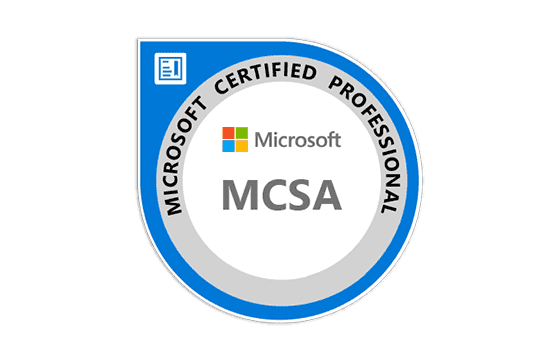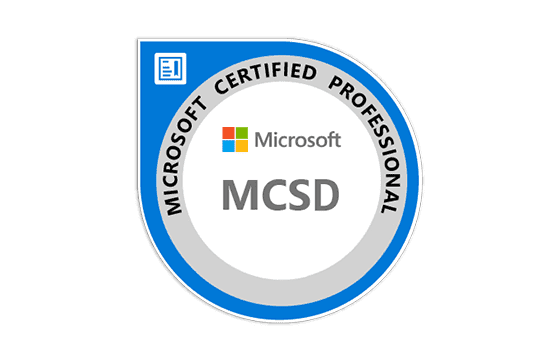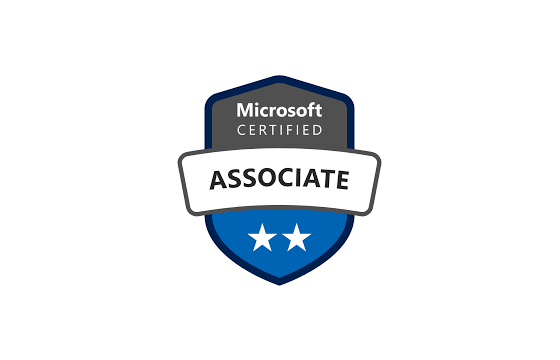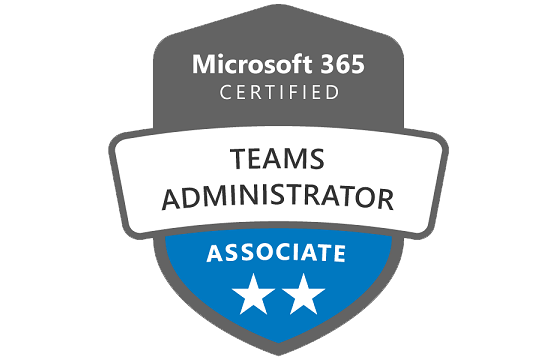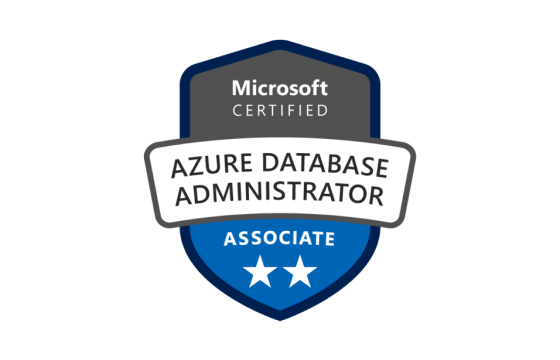Pass Your Microsoft Certified: Dynamics 365 Field Service Functional Consultant Associate Certification Easy!
Microsoft Certified: Dynamics 365 Field Service Functional Consultant Associate Certification Exams Questions & Answers, Accurate & Verified By IT Experts
Instant Download, Free Fast Updates, 99.6% Pass Rate.

$44.99
Microsoft Certified: Dynamics 365 Field Service Functional Consultant Associate Certification Exams Screenshots
Download Free Microsoft Certified: Dynamics 365 Field Service Functional Consultant Associate Practice Test Questions VCE Files
| Exam | Title | Files |
|---|---|---|
Exam MB-240 |
Title Microsoft Dynamics 365 for Field Service |
Files 3 |
Exam PL-200 |
Title Microsoft Power Platform Functional Consultant |
Files 5 |
Microsoft Certified: Dynamics 365 Field Service Functional Consultant Associate Certification Exam Dumps & Practice Test Questions
Prepare with top-notch Microsoft Certified: Dynamics 365 Field Service Functional Consultant Associate certification practice test questions and answers, vce exam dumps, study guide, video training course from ExamCollection. All Microsoft Certified: Dynamics 365 Field Service Functional Consultant Associate certification exam dumps & practice test questions and answers are uploaded by users who have passed the exam themselves and formatted them into vce file format.
Introduction to Dynamics 365 Field Service Functional Consultant Associate Certification
The business world is evolving at an unprecedented pace, and organizations are seeking ways to optimize operations, improve customer satisfaction, and gain a competitive edge. Field service management has become a critical aspect of modern business operations, and Microsoft Dynamics 365 provides a comprehensive solution to streamline and enhance these processes. The Dynamics 365 Field Service Functional Consultant Associate certification is specifically designed for professionals who want to demonstrate their ability to implement and manage field service solutions effectively.
This certification equips candidates with the knowledge and skills to configure the Dynamics 365 Field Service environment, manage work orders, schedule resources efficiently, and monitor service delivery. It validates the capability to leverage Dynamics 365 tools to deliver seamless field service experiences, increase operational efficiency, and improve customer satisfaction.
Understanding the Role of a Field Service Functional Consultant
A field service functional consultant is a professional who bridges the gap between business requirements and technical implementation. They work closely with stakeholders to understand operational needs, design solutions, and ensure the Dynamics 365 Field Service system is configured to deliver optimal performance.
The role involves:
Analyzing business processes and identifying opportunities for improvement.
Configuring and customizing Dynamics 365 Field Service modules to match operational requirements.
Training users and supporting adoption of the platform.
Monitoring service operations and making data-driven recommendations to enhance efficiency.
A successful consultant combines business acumen with technical expertise, ensuring that field service operations are both efficient and aligned with strategic goals.
Key Components of Dynamics 365 Field Service
To fully understand the certification and its value, it is important to examine the core components of Dynamics 365 Field Service. Each component plays a crucial role in enabling organizations to deliver high-quality service experiences:
Work Order Management
Work order management is at the heart of field service operations. It involves creating, tracking, and completing service requests efficiently. Dynamics 365 allows consultants to:
Generate work orders automatically based on service agreements or customer requests.
Assign tasks to the most suitable resources, considering skills, location, and availability.
Track progress in real-time, ensuring timely completion of service tasks.
Effective work order management reduces delays, increases first-time fix rates, and enhances customer satisfaction.
Resource Scheduling and Optimization
Efficient resource allocation is vital for field service operations. Dynamics 365 offers advanced scheduling capabilities that allow functional consultants to:
Optimize technician schedules using AI-driven recommendations.
Minimize travel time and maximize productivity.
Ensure the right technician with the right skills is assigned to each task.
This component ensures that field operations run smoothly, reducing costs and improving service quality.
Inventory and Asset Management
Field service operations rely heavily on having the right parts and equipment available when needed. Dynamics 365 enables organizations to:
Track inventory levels across multiple locations.
Manage assets and maintenance schedules.
Automate reordering of critical parts to prevent downtime.
By effectively managing inventory and assets, organizations can avoid service delays, reduce operational costs, and maintain high service standards.
Customer Communication and Engagement
Customer satisfaction is a key metric for field service success. Dynamics 365 facilitates seamless communication by:
Sending automated notifications to customers regarding service schedules.
Providing real-time updates on technician location and expected arrival times.
Collecting feedback after service completion to improve future operations.
By keeping customers informed and engaged, organizations can build trust and improve loyalty.
Analytics and Reporting
Data-driven decision-making is essential for continuous improvement. Dynamics 365 offers powerful analytics and reporting capabilities, allowing consultants to:
Monitor key performance indicators such as response time, resolution time, and first-time fix rate.
Identify trends and inefficiencies in field operations.
Generate actionable insights to optimize service delivery.
Analytics ensures that decisions are based on accurate, real-time data, leading to better operational outcomes.
Exam Overview and Preparation
The Dynamics 365 Field Service Functional Consultant Associate certification requires candidates to pass the Microsoft exam that tests knowledge and practical skills. The exam evaluates the ability to configure and implement Field Service solutions, manage resources and work orders, and leverage reporting and analytics to drive improvements.
Exam Topics
Key areas covered in the exam include:
Configuring the Field Service environment, including service territories, work hours, and business rules.
Managing work orders, agreements, and service tasks.
Scheduling and dispatching resources efficiently using Dynamics 365 tools.
Implementing mobile solutions for field technicians.
Monitoring service performance and using analytics to improve operations.
Preparation Strategies
Successful preparation involves a combination of study, hands-on practice, and familiarity with real-world scenarios. Recommended strategies include:
Exploring Microsoft Learn modules dedicated to Dynamics 365 Field Service.
Participating in hands-on labs and practice exercises to simulate real field operations.
Reviewing case studies to understand practical implementation challenges and solutions.
Joining online communities or study groups to share knowledge and insights.
Consistent practice and a deep understanding of functional scenarios are critical to passing the certification exam and applying the skills in professional settings.
Career Benefits and Opportunities
Earning the Dynamics 365 Field Service Functional Consultant Associate certification can significantly enhance career prospects. Certified professionals are in high demand, as organizations increasingly rely on digital solutions to manage field service operations.
Enhanced Career Opportunities
Certified consultants can pursue roles such as:
Dynamics 365 Field Service Consultant
Functional Consultant for Service Operations
Solution Architect specializing in field service solutions
Technical Business Analyst focusing on operational optimization
Higher Earning Potential
Certification demonstrates expertise and proficiency, often leading to higher salaries and better career advancement opportunities. Organizations value certified professionals who can optimize operations, improve customer satisfaction, and deliver measurable business value.
Industry Recognition
Being certified positions professionals as experts in field service management using Microsoft Dynamics 365. It provides credibility with employers, clients, and peers, establishing the consultant as a trusted resource in implementing effective service solutions.
Practical Applications of Field Service Solutions
Understanding theory is important, but practical application is what sets a successful consultant apart. Dynamics 365 Field Service is used in various industries to enhance operational efficiency and customer satisfaction.
Manufacturing and Industrial Services
In manufacturing, field service teams often need to perform equipment maintenance or repairs on-site. Dynamics 365 enables:
Predictive maintenance scheduling to prevent equipment failure.
Real-time tracking of service resources and parts.
Automated alerts for upcoming maintenance tasks.
This approach minimizes downtime, improves asset longevity, and ensures smooth production processes.
Healthcare and Medical Equipment
Healthcare providers and medical equipment companies rely on timely service to ensure critical equipment functions properly. Dynamics 365 allows for:
Scheduling service visits for medical devices efficiently.
Tracking asset maintenance history for compliance and quality assurance.
Providing mobile access for technicians to update service status in real time.
This ensures patient safety and uninterrupted healthcare services.
Telecommunications and Utilities
Telecommunications and utility companies deploy field technicians to install, repair, and maintain infrastructure. Dynamics 365 facilitates:
Efficient dispatching of technicians to service locations.
Monitoring work progress and completion rates.
Managing inventory of replacement parts and tools.
Optimized operations result in faster service delivery, reduced downtime, and improved customer satisfaction.
Consumer Services and Retail
Retail and consumer service organizations use field service solutions to support home installations, repairs, and maintenance. Dynamics 365 helps in:
Scheduling appointments based on customer preferences and technician availability.
Ensuring timely delivery of parts and equipment.
Providing automated communication updates to customers.
By enhancing service reliability, companies can strengthen brand loyalty and improve customer retention.
Tips for Success as a Functional Consultant
Achieving success as a Dynamics 365 Field Service Functional Consultant requires more than just certification. Professionals should focus on continuous learning, real-world experience, and soft skills development.
Mastering the Platform
A deep understanding of Dynamics 365 modules, features, and customization options is essential. Hands-on experience with configuration, resource management, and reporting tools ensures consultants can address diverse client requirements effectively.
Building Business Acumen
Consultants need to understand business processes, operational challenges, and industry-specific requirements. This knowledge allows them to design solutions that provide real value, rather than just technical functionality.
Communication and Collaboration
Effective communication with stakeholders, including clients, technicians, and IT teams, is crucial. Consultants must translate technical capabilities into practical business solutions and ensure smooth adoption of the platform.
Continuous Learning
The technology landscape evolves rapidly, and staying updated with the latest Dynamics 365 features, updates, and industry trends is critical for maintaining relevance and expertise.
The Microsoft Dynamics 365 Field Service Functional Consultant Associate certification represents a valuable credential for professionals looking to excel in field service management. It combines technical expertise, business understanding, and practical application skills to optimize service operations, improve customer satisfaction, and drive organizational efficiency.
Earning this certification not only validates proficiency in Dynamics 365 Field Service but also enhances career opportunities, industry recognition, and earning potential. With the right preparation, hands-on experience, and continuous learning, professionals can leverage this certification to become trusted experts in the growing field of digital field service management.
Comprehensive Guide to Preparing for the Dynamics 365 Field Service Functional Consultant Exam
Earning the Dynamics 365 Field Service Functional Consultant Associate certification is a career-defining achievement. While understanding the platform’s features is essential, successful candidates also need to prepare strategically for the exam. This guide provides an in-depth roadmap for mastering the exam content, gaining hands-on experience, and applying knowledge in real-world scenarios.
Understanding the Exam Structure
The certification exam evaluates candidates across multiple domains, testing both theoretical knowledge and practical skills. Understanding the exam structure is the first step in building an effective study plan.
Core Domains Covered
Configure Field Service: This domain covers setting up service territories, work hours, and service scheduling rules. Candidates must understand how to configure the system to reflect organizational requirements.
Manage Work Orders and Agreements: This section evaluates the ability to create, assign, and manage work orders, service tasks, and agreements to ensure operational efficiency.
Resource Scheduling and Optimization: Candidates must demonstrate proficiency in resource allocation, scheduling, and dispatching using AI-assisted tools within Dynamics 365.
Mobile and Field Technician Enablement: This domain tests knowledge of deploying and supporting mobile applications that field technicians use for service execution.
Analytics and Performance Monitoring: Candidates are required to understand how to monitor KPIs, generate reports, and leverage data insights for continuous improvement.
Familiarity with these domains allows candidates to focus on the most relevant areas and allocate their study time efficiently.
Creating a Structured Study Plan
A structured study plan is critical for exam success. Candidates should create a schedule that balances theoretical study, hands-on practice, and review.
Step 1: Review Official Microsoft Learning Paths
Microsoft Learn offers comprehensive modules dedicated to Field Service. These modules provide step-by-step guidance on configuring the platform, managing resources, and leveraging analytics. Candidates should complete relevant modules and take notes on key features and functionality.
Step 2: Hands-On Practice
Theory alone is insufficient for success. Hands-on practice allows candidates to experience real-world scenarios, including:
Configuring service territories and work hours.
Creating and managing work orders and service agreements.
Optimizing resource schedules and managing dispatch.
Using mobile applications for field technicians.
Setting up a trial Dynamics 365 environment or using sandbox instances allows candidates to experiment safely while gaining confidence.
Step 3: Use Exam Prep Resources
Exam preparation resources such as practice tests, study guides, and online forums can help reinforce knowledge and identify areas that require additional focus. Candidates should:
Take timed practice exams to simulate test conditions.
Review incorrect answers and understand why mistakes occurred.
Join online study groups to discuss challenging concepts and share insights.
Step 4: Focus on Real-World Scenarios
The exam emphasizes practical application. Candidates should analyze case studies and scenario-based exercises to understand how Dynamics 365 Field Service is applied in various industries, including manufacturing, healthcare, utilities, and retail.
Key Exam Tips and Strategies
Passing the exam requires more than memorization. Strategic preparation, critical thinking, and problem-solving skills are essential.
Understand the Business Context
Many exam questions present real-world scenarios. Understanding the underlying business objectives, such as reducing downtime, improving customer satisfaction, or optimizing resources, helps candidates select the most appropriate solutions.
Focus on Core Functionalities
While Dynamics 365 has extensive features, the exam focuses on the core functional areas: work orders, scheduling, resource management, mobile enablement, and reporting. Candidates should prioritize mastering these areas.
Practice Using the Mobile App
Field technicians rely on mobile applications to execute service tasks. Familiarity with mobile workflows, task updates, and reporting is crucial for both the exam and practical implementation.
Manage Time Effectively
The exam is time-bound, and candidates must pace themselves. Reading each question carefully, eliminating clearly incorrect options, and focusing on scenario-based logic improves efficiency and accuracy.
Implementing Field Service Solutions in Real-World Scenarios
Certification demonstrates knowledge, but practical implementation ensures value for organizations. Functional consultants must design and deploy solutions that address operational challenges effectively.
Manufacturing Industry Applications
In manufacturing, minimizing downtime and maintaining equipment efficiency are critical. Field Service consultants can implement predictive maintenance schedules, automate alerts for potential equipment failures, and ensure that the right technician is assigned based on expertise and location.
Healthcare and Medical Equipment
Medical equipment maintenance requires precision and timely execution. Consultants can use Dynamics 365 to schedule preventive maintenance, track assets across multiple locations, and ensure technicians have real-time access to equipment history and service instructions.
Utilities and Telecommunications
Telecommunications and utility companies require rapid response to outages and service requests. Functional consultants can configure automated alerts, optimize dispatch schedules, and monitor resource allocation to ensure timely service delivery and minimal disruption to customers.
Retail and Consumer Services
In retail, home installation, repair, and maintenance services are common. Consultants can enhance the customer experience by providing accurate scheduling, automated notifications, and real-time updates on technician arrival times.
Leveraging Analytics for Continuous Improvement
One of the most valuable aspects of Dynamics 365 Field Service is its reporting and analytics capabilities. Certified consultants can:
Monitor KPIs such as first-time fix rate, response time, and service cost per task.
Identify inefficiencies and implement process improvements.
Generate dashboards to provide stakeholders with insights into field operations.
Data-driven decision-making enables organizations to continuously enhance service quality, optimize resources, and improve customer satisfaction.
Advanced Tips for Functional Consultants
Beyond passing the exam, becoming an effective Field Service consultant involves advanced strategies and ongoing skill development.
Customize Solutions for Industry-Specific Needs
Each industry has unique service requirements. Consultants should tailor workflows, forms, and dashboards to reflect these needs, ensuring that Dynamics 365 supports operational efficiency and compliance.
Stay Updated on Platform Enhancements
Microsoft frequently updates Dynamics 365 with new features and enhancements. Staying informed about these updates allows consultants to leverage the latest tools for improved functionality and efficiency.
Develop Soft Skills
Effective communication, problem-solving, and stakeholder management are essential. Functional consultants must translate technical capabilities into practical business solutions and guide users through change management processes.
Participate in Professional Communities
Engaging with Microsoft communities, forums, and user groups provides access to insights, best practices, and real-world solutions. Networking with peers enhances knowledge and opens opportunities for collaboration.
Preparing for the Dynamics 365 Field Service Functional Consultant Associate exam requires a balanced approach that combines theoretical study, hands-on practice, and practical scenario analysis. Understanding the exam structure, focusing on core functional areas, and applying knowledge to real-world situations are key to success.
Earning this certification not only validates expertise but also empowers professionals to implement solutions that enhance operational efficiency, improve customer satisfaction, and provide measurable business value. By following a structured study plan, leveraging resources, and engaging with real-world scenarios, candidates can confidently achieve certification and excel in their careers as Dynamics 365 Field Service Functional Consultants.
Optimizing Dynamics 365 Field Service Through Integration and Automation
Modern organizations rely on technology to streamline field service operations, reduce costs, and improve customer satisfaction. Dynamics 365 Field Service is a powerful platform that not only manages work orders and resources but also integrates with other systems and leverages automation to drive operational excellence. For a functional consultant, understanding integration points, automation tools, and optimization strategies is crucial for delivering measurable business value.
The Importance of Integration in Field Service
Integration allows Dynamics 365 Field Service to work seamlessly with other business applications, ensuring that data flows smoothly across the organization. Functional consultants must understand how to connect the platform with other systems to optimize service delivery.
Key Integration Points
Customer Relationship Management (CRM): Integrating Field Service with Dynamics 365 Sales or other CRM systems ensures that customer information, service history, and preferences are readily available. This enables personalized service and proactive engagement.
Enterprise Resource Planning (ERP): Connecting Field Service with ERP solutions allows for efficient inventory and asset management. Service teams can access real-time stock levels, automate parts ordering, and reduce service delays.
IoT and Predictive Maintenance Systems: Integration with IoT sensors enables predictive maintenance by automatically generating work orders when equipment shows signs of potential failure. This reduces downtime and increases equipment lifespan.
Communication Platforms: Integration with email, SMS, and collaboration tools ensures timely notifications to customers and field technicians, improving transparency and satisfaction.
By leveraging these integrations, organizations can create a connected ecosystem where field service operations are fully aligned with broader business processes.
Automation in Field Service Operations
Automation is a key driver of efficiency in Dynamics 365 Field Service. Functional consultants use automation to reduce manual tasks, minimize errors, and ensure that service processes are executed consistently.
Automated Work Order Generation
Automating work order creation based on service agreements, IoT alerts, or customer requests ensures that service requests are handled promptly. This includes:
Automatically creating recurring work orders for preventive maintenance.
Generating urgent work orders in response to equipment failures or critical alerts.
Assigning tasks to technicians based on skills, availability, and location.
Automation streamlines operations, reduces response time, and enhances customer satisfaction.
Resource Scheduling and Optimization
Dynamics 365 provides AI-driven scheduling tools that automatically assign the right technician to the right job. Functional consultants can configure:
Rules for prioritizing urgent tasks.
Travel optimization to minimize time and cost.
Load balancing across resources to maximize efficiency.
This ensures that service delivery is efficient, cost-effective, and aligned with organizational objectives.
Automated Customer Communication
Automation in customer communication allows organizations to maintain proactive engagement without manual effort. Features include:
Automated appointment confirmations and reminders.
Real-time updates on technician location and estimated arrival times.
Follow-up surveys and feedback collection after service completion.
Timely and consistent communication improves customer trust and strengthens long-term relationships.
Optimizing Work Orders and Service Processes
Efficient work order management is the backbone of field service operations. Functional consultants can implement best practices to enhance productivity and operational outcomes.
Standardizing Work Order Processes
Consistency is key to reducing errors and improving efficiency. Consultants can standardize workflows by:
Creating templates for common service tasks.
Defining mandatory fields to capture critical information.
Implementing approval processes for complex work orders.
Standardization ensures that all team members follow the same process, reducing confusion and improving service quality.
Prioritizing Tasks and Resources
Not all service requests have the same urgency. Dynamics 365 allows consultants to:
Classify work orders by priority, impact, and urgency.
Assign tasks to the most qualified and available technicians.
Adjust schedules dynamically based on changing conditions.
Effective prioritization ensures that high-impact issues are addressed quickly, enhancing customer satisfaction and operational efficiency.
Tracking Performance Metrics
Monitoring performance is essential for continuous improvement. Consultants can configure dashboards and reports to track:
First-time fix rates and response times.
Technician productivity and workload distribution.
Customer satisfaction scores and service costs.
Regularly analyzing these metrics allows organizations to identify bottlenecks, optimize processes, and implement targeted improvements.
Mobile Enablement for Field Technicians
Field technicians are the face of service delivery, and mobile enablement is critical for their success. Dynamics 365 provides mobile applications that allow technicians to access work orders, update status, and capture data in real time.
Features of the Mobile App
Access to assigned work orders and detailed task instructions.
Real-time updates on schedule changes and new assignments.
Inventory management capabilities to track parts usage.
Photo capture and note-taking for service documentation.
Mobile enablement improves technician efficiency, reduces errors, and ensures accurate reporting.
Best Practices for Mobile Deployment
Functional consultants should ensure successful mobile adoption by:
Providing training and support for field technicians.
Configuring offline capabilities for areas with limited connectivity.
Customizing the app interface to match workflow requirements.
Effective mobile deployment enables technicians to work autonomously while staying connected to the organization.
Leveraging Analytics and AI for Optimization
Data-driven insights are a key differentiator in modern field service operations. Dynamics 365 provides analytics and AI tools to help organizations optimize performance and make informed decisions.
Predictive Analytics
By analyzing historical data, predictive analytics can:
Anticipate equipment failures before they occur.
Forecast resource requirements based on seasonal demand.
Identify trends that impact service quality or efficiency.
Predictive insights allow proactive decision-making, reducing downtime and improving operational outcomes.
AI-Powered Recommendations
Dynamics 365 uses AI to suggest:
Optimal resource assignments for work orders.
Efficient routes for technicians to minimize travel time.
Maintenance schedules based on usage patterns and equipment condition.
AI-powered recommendations help organizations achieve higher efficiency and better customer satisfaction.
Custom Dashboards and Reporting
Functional consultants can create custom dashboards to:
Monitor KPIs in real time.
Provide management with actionable insights.
Track compliance with service level agreements and operational goals.
Dashboards transform raw data into meaningful insights that drive continuous improvement.
Continuous Improvement Strategies
Achieving excellence in field service is an ongoing process. Functional consultants play a key role in fostering a culture of continuous improvement by:
Reviewing performance metrics regularly and identifying areas for enhancement.
Implementing process changes based on feedback from technicians and customers.
Staying updated with new Dynamics 365 features and industry best practices.
Conducting regular training and knowledge-sharing sessions for field teams.
A commitment to continuous improvement ensures that organizations remain competitive and deliver superior service experiences.
Optimizing Dynamics 365 Field Service requires a deep understanding of integration, automation, and operational best practices. Functional consultants play a pivotal role in connecting systems, automating processes, and ensuring that field service operations run efficiently and effectively.
By leveraging integration with CRM, ERP, IoT, and communication platforms, consultants create a connected ecosystem that drives operational excellence. Automation streamlines work order management, scheduling, and customer communication, while mobile enablement empowers field technicians to work effectively in the field. Analytics and AI tools provide actionable insights for continuous improvement, ensuring that organizations can optimize performance, reduce costs, and enhance customer satisfaction.
Mastering these strategies not only ensures certification success but also positions professionals as valuable assets capable of transforming field service operations into a competitive advantage for their organizations.
Advanced Configuration and Customization in Dynamics 365 Field Service
While foundational knowledge and certification provide a strong base, advanced configuration and customization skills are essential for delivering tailored solutions that meet unique organizational needs. Dynamics 365 Field Service offers extensive flexibility, allowing functional consultants to design workflows, automate processes, and create solutions that optimize service delivery.
Understanding Advanced Configuration Options
Advanced configuration ensures that the platform aligns perfectly with business processes and operational goals. Consultants must be familiar with these options to maximize the platform’s effectiveness.
Service Territories and Hierarchies
Properly configuring service territories is critical for efficient resource allocation. Consultants can:
Define hierarchical structures for territories to manage large geographic areas.
Assign resources to specific territories based on skills, location, or availability.
Optimize service coverage by analyzing workload distribution across territories.
This configuration reduces travel time, improves response rates, and ensures that the right resources are deployed effectively.
Scheduling and Dispatch Optimization
Beyond basic scheduling, advanced configuration allows consultants to leverage rules-based and AI-driven optimization:
Configure service-level agreements (SLAs) to ensure compliance with response times.
Implement recurring schedules for preventive maintenance.
Use optimization models to balance workload across multiple resources and locations.
Optimized scheduling ensures efficient operations and enhances customer satisfaction by meeting promised service windows.
Work Order Types and Templates
Creating customized work order types and templates allows organizations to standardize processes while accommodating unique service requirements. Consultants can:
Define different work order types for emergency, preventive, or planned maintenance.
Create templates that include required fields, instructions, and parts lists.
Automate workflows associated with each work order type, reducing manual effort and errors.
Templates and work order types improve consistency, reduce delays, and simplify training for new staff.
Customization for Enhanced User Experience
Customization ensures that users can interact with Dynamics 365 efficiently and effectively. Functional consultants can tailor forms, dashboards, and views to meet user needs.
Forms and Views
Customizing forms and views allows technicians and dispatchers to access critical information quickly:
Design role-specific forms to display relevant fields for each user type.
Configure views to filter work orders, resources, and assets based on priorities.
Use conditional formatting to highlight urgent or high-priority tasks.
Tailored forms and views increase efficiency, reduce errors, and ensure that users can focus on the most important tasks.
Dashboards and Reports
Dynamic dashboards and customized reports provide actionable insights for management and field teams:
Create role-specific dashboards to monitor KPIs such as response times, first-time fix rates, and customer satisfaction scores.
Implement real-time reporting to track progress on active work orders and resource utilization.
Automate report generation to reduce manual effort and ensure timely delivery of insights.
Dashboards and reports enable data-driven decisions, ensuring continuous operational improvement.
Business Rules and Workflows
Automating business processes through rules and workflows enhances efficiency and reduces manual intervention:
Configure automated notifications for work order assignments, schedule changes, or SLA breaches.
Design workflows for approval processes, escalations, and task dependencies.
Implement validation rules to ensure data accuracy and compliance with operational standards.
Well-designed business rules and workflows streamline operations and maintain consistency across teams.
Real-World Case Studies
Practical examples illustrate how advanced configuration and customization translate into tangible business benefits.
Manufacturing: Reducing Equipment Downtime
A manufacturing company implemented predictive maintenance using Dynamics 365 Field Service:
IoT sensors monitored equipment and automatically generated work orders for maintenance before failure occurred.
AI-driven scheduling assigned technicians based on skill level and proximity.
Automated reporting tracked performance metrics, enabling continuous process improvement.
Result: Equipment downtime decreased by 35%, and production efficiency increased significantly.
Healthcare: Enhancing Medical Equipment Service
A medical equipment provider used advanced customization to streamline field service:
Customized work order templates ensured all critical maintenance tasks were completed consistently.
Mobile enablement allowed technicians to access service history, parts inventory, and instructions on-site.
Automated customer notifications improved communication and reduced missed appointments.
Result: Customer satisfaction improved, compliance standards were met, and service efficiency increased.
Utilities: Optimizing Field Operations
A utility company leveraged scheduling optimization and AI recommendations to improve service delivery:
Work orders were automatically prioritized based on urgency and impact.
Technicians received optimized routes to minimize travel time and maximize completed tasks.
Dashboards provided real-time visibility into field operations for management.
Result: Service response times improved by 40%, operational costs decreased, and customer complaints dropped significantly.
Retail: Streamlining Consumer Services
A retail company offering home installation and repair services implemented custom workflows:
Standardized work order types reduced errors and training time for new technicians.
Automated scheduling ensured appointments aligned with customer availability and technician schedules.
Customer feedback was collected automatically to enhance service quality.
Result: Service completion rates improved, customer satisfaction increased, and operational efficiency was enhanced.
Best Practices for Advanced Consultants
To maximize impact, functional consultants should follow key best practices:
Document Configurations: Maintain detailed documentation of all customizations, workflows, and configurations for future reference and troubleshooting.
Test Thoroughly: Validate all configurations in a sandbox environment to ensure they function as intended before deployment.
Engage Stakeholders: Collaborate with business users, technicians, and management to ensure solutions meet practical needs.
Monitor and Adjust: Continuously monitor performance metrics and adjust configurations to address evolving operational requirements.
Stay Updated: Keep abreast of platform updates, new features, and industry best practices to maintain a competitive edge.
Advanced configuration and customization are critical for leveraging the full potential of Dynamics 365 Field Service. By tailoring workflows, automating processes, and optimizing scheduling and resource management, functional consultants enable organizations to deliver superior field service experiences.
Real-world case studies highlight the tangible benefits of advanced implementation, from reducing equipment downtime to improving customer satisfaction and operational efficiency. Mastering these skills ensures that consultants can not only pass certification exams but also deliver measurable business value, making them indispensable assets to any organization leveraging Dynamics 365 Field Service.
Emerging Trends and Future Opportunities in Dynamics 365 Field Service
The field service landscape is rapidly evolving, driven by technological advancements, changing customer expectations, and the growing need for operational efficiency. Dynamics 365 Field Service is at the forefront of this transformation, providing tools to streamline service delivery, optimize resources, and enhance customer experiences. For functional consultants, staying ahead of these trends is essential for delivering value and advancing their careers.
The Impact of Artificial Intelligence on Field Service
Artificial intelligence (AI) is revolutionizing how organizations manage field service operations. Dynamics 365 leverages AI to provide predictive insights, optimize scheduling, and enhance decision-making.
Predictive Maintenance
AI-powered predictive maintenance analyzes data from IoT sensors, equipment usage, and historical service records to anticipate failures before they occur. Functional consultants can configure automated alerts and work orders, ensuring timely maintenance and reducing unplanned downtime.
Intelligent Scheduling and Dispatch
AI-driven scheduling tools recommend optimal technician assignments based on skills, location, and availability. Consultants can use these insights to balance workloads, minimize travel time, and increase the first-time fix rate, improving both efficiency and customer satisfaction.
Customer Insights and Personalization
AI enables a deeper understanding of customer behavior, preferences, and service history. Consultants can leverage these insights to deliver personalized communication, proactive service, and tailored solutions, enhancing loyalty and trust.
Internet of Things (IoT) Integration
IoT integration is transforming field service by providing real-time monitoring and actionable insights. Connected devices allow organizations to track equipment status, usage patterns, and potential failures.
Real-Time Monitoring
IoT sensors provide live data on asset performance, enabling field service teams to respond quickly to anomalies. Functional consultants configure alerts and automated workflows to ensure rapid issue resolution.
Automation of Service Requests
Connected devices can automatically generate service requests when predefined thresholds are met. This reduces manual reporting, speeds up response times, and improves operational efficiency.
Data-Driven Decision Making
IoT data allows organizations to identify trends, optimize resource allocation, and implement preventive measures. Functional consultants play a key role in translating this data into actionable insights and workflows within Dynamics 365.
Mobile and Remote Workforce Enablement
The modern field workforce is increasingly mobile and distributed. Dynamics 365 mobile applications empower technicians with real-time access to work orders, customer information, and inventory management tools.
Remote Collaboration
Mobile apps facilitate communication between field technicians, dispatchers, and management, enabling real-time updates and collaboration. Functional consultants ensure these tools are configured for seamless use, even in areas with limited connectivity.
Enhanced Productivity
Mobile enablement reduces administrative tasks, allowing technicians to focus on completing work efficiently. Features like photo capture, digital signatures, and offline access improve accuracy and speed in service delivery.
Customer-Centric Service Models
Customer expectations are evolving, and organizations are adopting customer-centric service models to stay competitive. Dynamics 365 enables proactive engagement, transparency, and personalized experiences.
Proactive Service
By leveraging predictive maintenance, IoT data, and AI-driven insights, organizations can address issues before they impact the customer. Functional consultants configure workflows and automated notifications to ensure proactive service delivery.
Real-Time Communication
Customers expect timely updates and clear communication. Dynamics 365 allows automated alerts, appointment reminders, and real-time tracking of technician locations, enhancing transparency and trust.
Feedback and Continuous Improvement
Collecting customer feedback after service interactions provides valuable insights for improvement. Functional consultants can design automated surveys and integrate responses into dashboards for continuous monitoring and optimization.
Career Growth Strategies for Functional Consultants
The Dynamics 365 Field Service Functional Consultant role is dynamic and in high demand. Professionals can advance their careers by combining technical expertise with strategic thinking, continuous learning, and industry engagement.
Continuous Learning and Certification
Keeping certifications up to date and pursuing advanced credentials ensures relevance in a rapidly changing technology landscape. Microsoft offers specialized certifications and learning paths that expand functional knowledge and technical skills.
Industry Specialization
Developing expertise in specific industries, such as healthcare, utilities, manufacturing, or retail, allows consultants to provide tailored solutions and become valued industry specialists.
Soft Skills and Leadership
Effective consultants combine technical skills with strong communication, problem-solving, and leadership abilities. Engaging with stakeholders, managing teams, and facilitating change management are key differentiators.
Networking and Professional Engagement
Joining Microsoft communities, attending conferences, and participating in professional forums provides exposure to best practices, emerging trends, and career opportunities. Networking with peers also fosters collaboration and knowledge sharing.
Consulting and Advisory Roles
Experienced consultants can transition into advisory or consulting roles, guiding organizations on strategy, platform adoption, and optimization. These roles offer increased responsibility, visibility, and career advancement potential.
Preparing for the Future of Field Service
The future of field service is driven by automation, connectivity, and customer-centric solutions. Functional consultants must anticipate changes and adapt to evolving technologies:
Embrace AI and Analytics: Continuously explore AI tools and data analytics to improve service efficiency and decision-making.
Leverage IoT Innovations: Integrate connected devices to enhance predictive maintenance and operational responsiveness.
Optimize Mobile and Remote Workflows: Ensure field teams are equipped with the latest mobile tools for productivity and collaboration.
Focus on Customer Experience: Design solutions that provide transparency, personalized service, and proactive engagement.
Adapt to Emerging Trends: Stay informed about industry trends, platform updates, and evolving customer expectations to remain competitive.
The Dynamics 365 Field Service Functional Consultant Associate certification not only validates technical expertise but also prepares professionals for the future of field service management. By embracing AI, IoT, automation, and customer-centric strategies, functional consultants can transform operations, enhance customer satisfaction, and create measurable business value.
The role of a functional consultant is evolving, requiring continuous learning, industry specialization, and strategic thinking. Those who adapt to emerging trends and leverage advanced tools will thrive in a dynamic environment, positioning themselves as invaluable assets in the growing field of digital field service.
This certification serves as a foundation for a rewarding career, enabling professionals to drive operational excellence, optimize field service operations, and shape the future of service delivery across industries.
Conclusion
The Microsoft Certified: Dynamics 365 Field Service Functional Consultant Associate certification represents a powerful credential for professionals seeking to excel in field service management. Across this series, we explored the certification’s value, exam preparation strategies, operational optimization, advanced customization, and emerging trends shaping the future of field service.
Achieving this certification validates not only technical proficiency but also the ability to implement solutions that streamline operations, optimize resources, and enhance customer satisfaction. From work order management and resource scheduling to mobile enablement, analytics, and AI-driven insights, Dynamics 365 equips organizations with the tools to deliver efficient, proactive, and customer-focused service.
Functional consultants play a pivotal role in transforming field service operations. By leveraging integrations with CRM, ERP, and IoT systems, automating workflows, customizing dashboards and forms, and adopting predictive and AI-powered strategies, they help organizations reduce costs, improve performance, and drive measurable business value.
Moreover, staying current with emerging technologies, industry trends, and evolving customer expectations ensures long-term career growth. Professionals who embrace continuous learning, industry specialization, and strategic thinking can position themselves as indispensable assets, capable of shaping the future of field service management.
Ultimately, this certification is more than a credential—it is a pathway to becoming a trusted expert who can bridge business requirements with technological solutions. It empowers professionals to not only succeed in their roles but also to make a lasting impact on organizational efficiency, service quality, and customer satisfaction, positioning them for a rewarding and dynamic career in the rapidly evolving world of digital field service.
ExamCollection provides the complete prep materials in vce files format which include Microsoft Certified: Dynamics 365 Field Service Functional Consultant Associate certification exam dumps, practice test questions and answers, video training course and study guide which help the exam candidates to pass the exams quickly. Fast updates to Microsoft Certified: Dynamics 365 Field Service Functional Consultant Associate certification exam dumps, practice test questions and accurate answers vce verified by industry experts are taken from the latest pool of questions.
Microsoft Microsoft Certified: Dynamics 365 Field Service Functional Consultant Associate Video Courses




Top Microsoft Certification Exams
- AZ-104
- AI-102
- DP-700
- AI-900
- AZ-305
- PL-300
- MD-102
- AZ-900
- AZ-500
- SC-200
- SC-300
- MS-102
- AZ-204
- SC-401
- DP-600
- SC-100
- AZ-700
- PL-200
- AZ-400
- AZ-800
- AZ-140
- SC-900
- PL-400
- PL-600
- AZ-801
- MS-900
- DP-300
- MS-700
- MB-280
- GH-300
- PL-900
- MB-800
- MB-330
- MB-310
- DP-100
- DP-900
- MB-820
- MB-230
- MB-700
- GH-200
- MS-721
- GH-900
- MB-920
- MB-910
- PL-500
- MB-500
- MB-335
- GH-500
- DP-420
- GH-100
- MB-240
- AZ-120
- SC-400
- DP-203
- AZ-303
- MB-210
- 98-388
- MB-900
- 62-193
- 98-383
- MO-100
Site Search:












